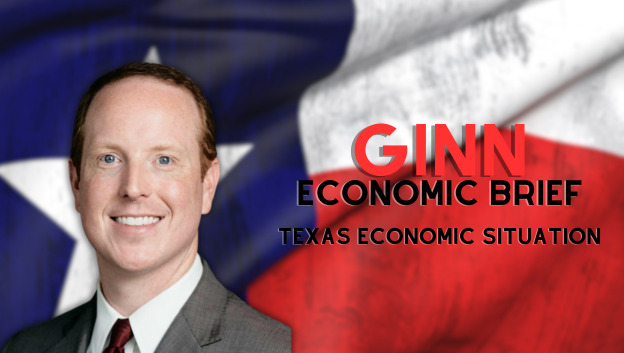
Despite strong fundamentals, Texas risks undermining its own success story. With the world’s 8th largest economy at $2.7 trillion, an expanding labor force, and a record-breaking 2.5 million jobs added since 2015, Texas continues to lead the nation in growth. But the Legislature’s newly passed 2026–27 budget threatens to slow that momentum by expanding the size and scope of government at a rate that even progressive states like California would envy.
Economic Growth, but Growing Headwinds
There’s no denying the economic strength of the Lone Star State:
- Texas reached all-time highs in April 2025 (latest data available) for both labor force participation (15.81 million) and employment (15.17 million), according to the BLS.
- Texas added 37,700 jobs in April alone and 215,500 year-over-year, according to TWC.
- The state leads the nation in exports and corporate relocations and ranks as the 8th-largest economy in the world, surpassing countries like Russia and Canada.
But even with a 4.2% GDP growth rate in Q3 2024 and a historic surplus, early indicators point to a slowing economy. According to the Dallas Fed’s Texas Business Outlook Surveys, business sentiment has dropped sharply, with 60% of firms expecting a decline in outlook due to tariffs. Employment growth is expected to slow in 2025.
So what did the Legislature do in response? Instead of tightening the belt, they swung open the spending gates.
The Most Expensive Budget in State History
The final 2026–27 budget totals $338 billion in all funds—an increase of 27.6% since 2022–23. State funds alone ballooned from $166.3 billion to $237.1 billion, a 42.6% increase. These numbers far outpace the maximum sustainable growth rate of population growth plus inflation, which has been roughly 20% over that time.
Even after backing out tax relief, state funds still increased 30.5%. The claim that this budget “stays within spending limits” is misleading, especially when lawmakers are using dedicated accounts and constitutional amendments to bypass the caps.
According to Americans for Tax Reform’s Sustainable Budget Project, Texas has overspent by $51.7 billion over the past decade beyond what sustainable growth would have allowed. This budget continues that trend.
While Texans struggle with higher prices and rising interest rates, the Legislature approved only $6.5 billion in new tax relief out of a $24 billion surplus and $28 billion Rainy Day Fund.
Meanwhile:
- The Foundation School Program for government schooling grew by $13.6 billion.
- Medicaid increased by $6.2 billion, totaling $82.6 billion.
- Without any structural reform, higher education, TRS, CPS, and even behavioral health all saw significant funding boosts.
- $10+ billion in new constitutionally dedicated funds (to be voted on this November) will bypass spending limits permanently.
These appropriations reflect permanent commitments, not temporary relief. The relief is short-lived; the spending is locked in. And the path to eliminating school M&O property taxes has all but vanished.
This budget also missed an opportunity for more permanent education reform. Lawmakers handed $8.5 billion more to public education, on top of billions more in formula-driven increases, to secure votes for an ESA pilot of $1 billion covering just 1.5% of school-age students.
The Texas Model at Risk
Since the first Republican trifecta in 2003, Texas budgets have slowly drifted toward big-government habits. But this budget accelerates that trend dramatically. If the budget had grown in line with population and inflation, total spending would be much lower. Instead, we’ve chosen California-style excess with conservative branding.
But it’s not too late to correct course:
- Strengthen the constitutional spending limit to cover all funds and all levels of government. Tie budget growth to population plus inflation with no loopholes. Require a three-fourths supermajority to exceed the limit.
- Eliminate property taxes quickly through compression and, importantly, less state and local government spending, with strict limits on property tax hikes until they’re eliminated.
- Provide truly universal school choice.
Final Thought
Texas remains an economic powerhouse—but it won’t stay that way if we continue to expand government at this pace. Unfortunately, this budget doesn’t reflect the values that built Texas. It’s a progressive spending plan in disguise. Lawmakers should have rejected it. Texas can do better. We must, for our economy, families, and future. Rein in the spending. Save the Texas Model.
Texans for Fiscal Responsibility relies on the support of private donors across the Lone Star State in order to promote fiscal responsibility and pro-taxpayer government in Texas. Please consider supporting our efforts! Thank you!
Get The Fiscal Note, our free weekly roll-up on all the current events that could impact your wallet. Subscribe today!




